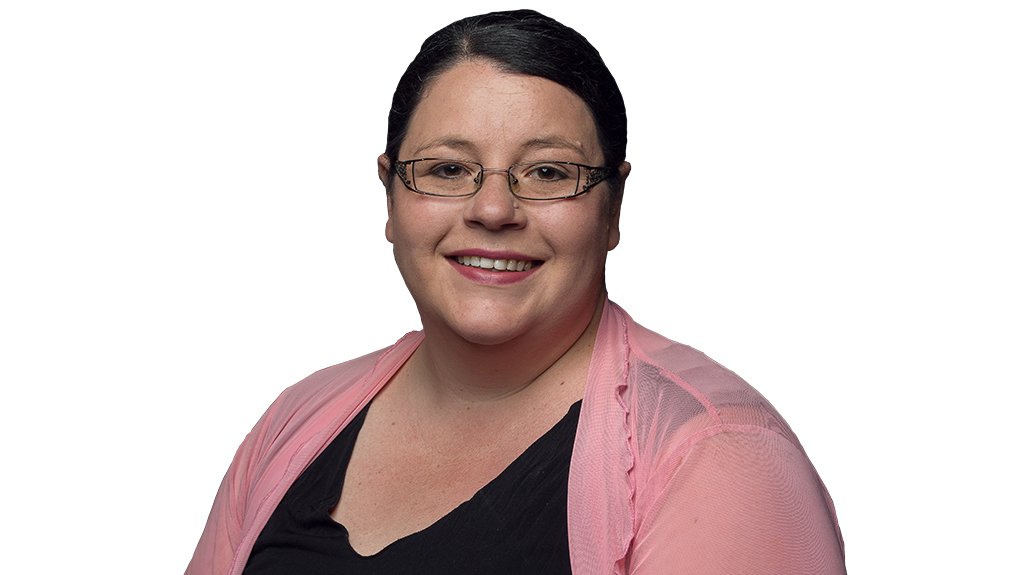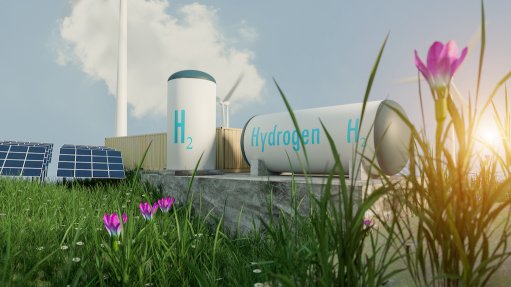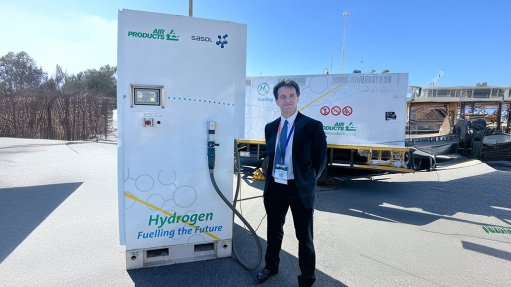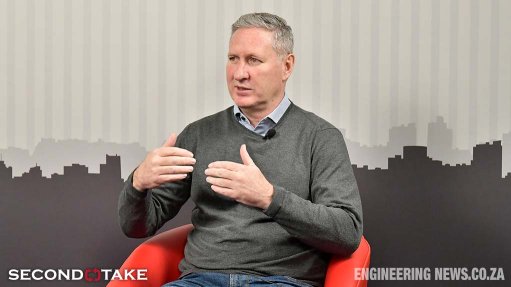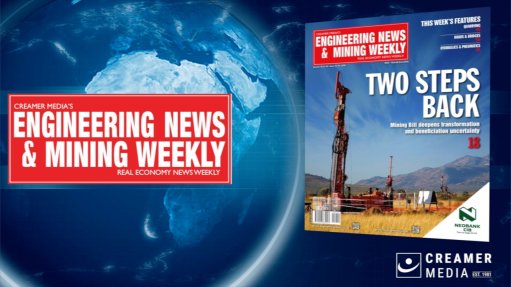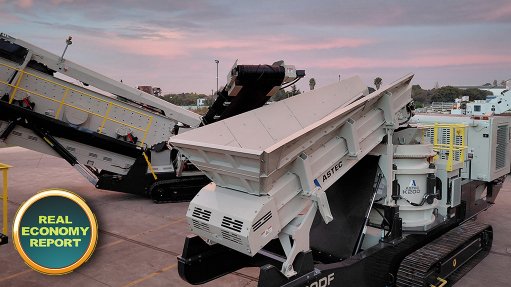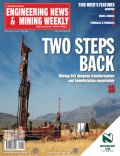4IR requires companies to think creatively about manufacturing
This article has been supplied.
The world has changed dramatically over the past two years. The effect of this is rapidly altering the way we view digitisation and associated technologies as well as the concept of the fourth industrial revolution (4IR). To remain in business, organisations must find new and innovative ways of running operations and addressing challenges created by the “new normal”. OMRON has been at the forefront of providing solutions and finding innovative and sustainable ways of addressing these challenges.
There are so many definitions of the 4IR, it is a very broad topic. It means something different to everyone involved,” OMRON Regional Marketing Manager Laetitia de Jager remarks.
In terms of industrial automation, it incorporates things like sensor networks, big data, artificial intelligence (AI) and human-machine interaction. Fundamentally, at present, most leading manufacturers operate on a concept referred to as “NEAR” factory, an abbreviation for Networked, Effective, Agile and Responsible. Workplaces using “NEAR” will increase productivity and ability to respond to changing market demands, migrating from running production lines at 100% capacity to only producing what the market needs.
“OMRON’s concept of ‘innovative-Automation!’ enables the “NEAR” factory to transform elements of Industry 4.0 into real benefits,” de Jager explains. “It focuses on three principles of manufacturing namely Integration, Intelligence and Interactive. Integration by increasing the speed and precision of production processes through fine-tuned technology and control systems. Machines in the production line communicate with each other and operate seamlessly, boosting efficiency and keeping the production line running optimally. Interactive machines and user interfaces need to be intuitive and easy to use, even for less skilled operators. Interfaces must give clear information about the machine or system status, highlighting any issues and ideally showing how to resolve them. Machine intelligence, specifically AI, is at the core of Industry 4.0. To make smart decisions, a machine needs sensors that monitor its operating environment and rules on how to respond to any changes. The more data and processes you have, the ‘smarter’ the machine must be. Smarter machines can help your operators to work more effectively by flagging potential problems so that you can address them immediately. This will keep your manufacturing lines running longer, with less downtime and higher productivity.
“Omron’s concept of ‘innovative-Automation!’ is in line with our corporate motto – ‘At work for a better life, a better world for all’. It represents the company's spirit and approach to business,” notes de Jager.
According to the World Economic Forum, the 4IR urges us to think creatively about the manufacturing process, value chain, distribution of products and the customer service process. Currently on the forefront, is the future of education, emphasising the need to look beyond these areas and strategically utilise the Internet of Things (IoT) to prepare the workforce for the challenges ahead.
“In line with our motto and supporting the focus of bringing the latest technology to industry, OMRON also realises that a major part of our contribution to the 4IR is to aid in equipping and enabling the workforce to operate in a digital environment,” de Jager mentions.
OMRON recently partnered with the Colliery Training College (CTC) in Emalahleni to develop and facilitate a training program aimed at artisans, upskilling them in the latest automation technology for Industry 4.0.
This partnership came about when CTC identified the need to upskill artisans to work in Industry 4.0 environments. Artisan 4.0TM was developed to address the perceived threat of the 4IR and associated fears, from grassroots level and up. Artisans are the foot soldiers, the boots on the ground of the skilled labour force, but their training is still aligned with the second and third industrial revolutions.
“The aim of the partnership between OMRON and CTC’s Artisan 4.0TM project is to empower artisans with knowledge of new technologies and to increase their employability and boost human capital,” de Jager explains passionately.
Endorsed by OMRON, the course utilises OMRON’s concept of “innovative-Automation”, incorporating the complete industrial automation spectrum and latest Industrial IoT technology.
The perception and fear that humans will become unemployable and even obsolete because of the advent of Industry 4.0, AI and robotics is incorrect but an unfortunate reality. We realise that education and knowledge is key to addressing these concerns. Artisan 4.0TM will help artisans keep their jobs and even do it better,” de Jager says.
“To quote the words of Nelson Mandela, education is the most powerful weapon which you can use to change the world. This project by OMRON is a clear example of how collaboration can result in great success, realising a ground-breaking dream. Using this concept as a blueprint and replicating it globally will empower the workforce and help realise our founder, Kazuma Tateisi’s, vision: “To the machine the work of the machine, to man the thrill of further creation,’” de Jager concludes.
Laetitia de Jager represents OMRON as Regional Marketing Manager for Sub Saharan Africa. She is accomplished in developing initiatives creating synergies between society and innovative technologies. She passionately supports skills development for industrial progress in Africa.
Comments
Press Office
Announcements
What's On
Subscribe to improve your user experience...
Option 1 (equivalent of R125 a month):
Receive a weekly copy of Creamer Media's Engineering News & Mining Weekly magazine
(print copy for those in South Africa and e-magazine for those outside of South Africa)
Receive daily email newsletters
Access to full search results
Access archive of magazine back copies
Access to Projects in Progress
Access to ONE Research Report of your choice in PDF format
Option 2 (equivalent of R375 a month):
All benefits from Option 1
PLUS
Access to Creamer Media's Research Channel Africa for ALL Research Reports, in PDF format, on various industrial and mining sectors
including Electricity; Water; Energy Transition; Hydrogen; Roads, Rail and Ports; Coal; Gold; Platinum; Battery Metals; etc.
Already a subscriber?
Forgotten your password?
Receive weekly copy of Creamer Media's Engineering News & Mining Weekly magazine (print copy for those in South Africa and e-magazine for those outside of South Africa)
➕
Recieve daily email newsletters
➕
Access to full search results
➕
Access archive of magazine back copies
➕
Access to Projects in Progress
➕
Access to ONE Research Report of your choice in PDF format
RESEARCH CHANNEL AFRICA
R4500 (equivalent of R375 a month)
SUBSCRIBEAll benefits from Option 1
➕
Access to Creamer Media's Research Channel Africa for ALL Research Reports on various industrial and mining sectors, in PDF format, including on:
Electricity
➕
Water
➕
Energy Transition
➕
Hydrogen
➕
Roads, Rail and Ports
➕
Coal
➕
Gold
➕
Platinum
➕
Battery Metals
➕
etc.
Receive all benefits from Option 1 or Option 2 delivered to numerous people at your company
➕
Multiple User names and Passwords for simultaneous log-ins
➕
Intranet integration access to all in your organisation



